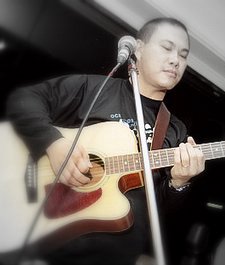Say it ain't so, Lea!
My wife Dadai loves Lea Salonga. She’s been a fan since she was a child and Lea was first a teenager slowly singing and dancing her way to local celebrity status in “That’s Entertainment” and then, all of a sudden, a young woman shooting to international fame in “Miss Saigon.” She has followed Lea’s career as best she could, and she still harbors a grudge against her youngest sister for having met Lea in person on a trip to
I broke that news to my wife on the night that ABS-CBN did that news feature on Lea. The teasers during the newscast were, as expected of the network, sensationalized: “ANG MALAKING PROBLEMA NI LEA SALONGA SA PAGIGING INA!!!” and “LEA SALONGA, MALAKING PROBLEMA ANG HINAHARAP SA PAGIGING INA!!!” The last line, of course, was intended as a word play on breastfeeding (“hinaharap” being a Tagalog euphemism for a woman’s breasts). I wondered what the big problem could be, but when that latter teaser was given I figured out it was about breastfeeding, but I fervently hoped I was wrong.
As it turned out, I was right: Lea was agonizing over what she felt was her low supply of milk and that she was not giving the right amount to her newborn. In the interview, she said she was having a difficult time nursing her baby and felt her baby was suffering for it. But the bad part was this: she was apparently planning to bottle-feed her child and justified this by saying she herself was bottle-fed “from the get-go.” She said bottle-feeding a baby does not mean a mother loves her child any less, and that is true: no one can judge a mother’s love for her baby just by the fact she bottle-feeds him or her. However, Lea is unwittingly playing into the lie that many mothers have fallen into: that their milk production is somehow inadequate and that they have to supplement this – if not completely replace it – with formula.
The irony is that early this month, the City of Manila hosted a record-breaking mass-breastfeeding affair aimed at popularizing breastfeeding and making it known that any mother can do it. The gathering (which ABS-CBN unfortunately spun into an erotic affair by saying, “LIBU-LIBONG INA, NAGTOPLESS!!!), held on May 4 at the San Andres Sports Complex, had almost 4,000 mothers simultaneously breastfeeding their children, and they were all there: rich, poor, young, not so young, celebrities, masa, you name it. Health Secretary Francisco Duque said gatherings like that are important as they “bring into the consciousness of the general public the obvious but often neglected advantages of breastfeeding.” The event was organized by the City of
The UNICEF website quotes UNICEF Representative in the Philippines Nicholas Alipui as saying: “The malnutrition situation in the
Unfortunately, what 4,000 mothers did in that record-breaking gathering may have been pushed back by that single interview done by one mother, Lea Salonga, with ABS-CBN which made it appear that breastfeeding is an impossibly difficult activity that should be ditched as soon as the first hint of pain or discomfort is felt by the mother. My wife breastfed our son for two years and two months and she will tell you that yes, breastfeeding is not easy, especially at first, but it’s not impossible. Our son took a few days before he could get used to nursing, but my wife kept at it and didn’t give up. In the end her efforts were rewarded with a healthy boy who’s extremely close to his parents. To be fair, Lea did not say she was giving up on breastfeeding, just that she was thinking about it. We’re emailing her through her website to remind her that she is being looked up to by millions of Filipinas, and that she can do a lot to help them by not giving up on breastfeeding.

